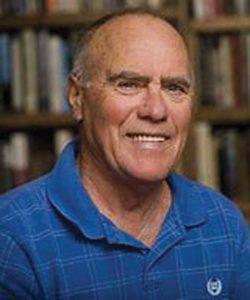By Ashlie Miller
In Pollyanna, the bright, cheery main character plays the “glad game,” where she considers joy and gratitude in the face of disappointment. In one instance, she recalls when her missionary parents received a barrel of gifts (like a care package). Her hopes of receiving a doll are dashed when she finds a pair of crutches instead. Though she does not need or want them, she is content that she has no need or use of them.
Today’s popular philosophy in our individual belief systems is that they should stay personal. “It’s okay for you to think that way, but I don’t need or want those beliefs.” Christianity, especially, is often remarked as something for the weak, a crutch, if you will. Many view their life as fulfilling and accomplished enough to get along well without the crutch of Christianity.
What does a Christian say to that? “Yes, you are right. I am weak and need supernatural support.” More importantly, what does the Bible say about those who are lame, weak, and halting around in life? Micah, a minor prophet in the Bible, writes the Lord’s own declaration of what He will do in the Day of the Lord – a day of judgment. He declares, “And the lame I will make the remnant, and those who were cast off, a strong nation” (4:7).
Strength and autonomy are the virtues of the day. “I can do it myself and should do it all myself.” Many exasperated mothers believe they should have it all and do it all on their own, never leaning into a community of family, friends, or church. Many young women, falsely perceiving the burden of children getting in the way of their path, resort to drastic, life-altering decisions accompanied by unforeseen guilt rather than true freedom.
Young adults insist on having all their ducks in a row, being financially stable, and well into a career before considering relationships that could lead to a family. Others are overwhelmed by the pressures of how they see the world operating and resort to drugs, self-harm, life on a blue-lit screen, inauthentic relationships, and chatGPT to answer their questions and problems in life. No one is truly making it on their own strength and self-autonomy, which are poor legs to walk through life. Instead of making a relationship with Christ the one they lean into, other substitutes (crutches) inevitably find their way into their lives.
But notice again from Micah 4 that God is always working and is sovereign over all people, holding each of them accountable to the same standard. Yet, it is the lame and the cast off whom He will make into a remnant to be restored. The bad news is that a day of judgment will come. The good news is that God will one day gather those of us who recognize our weakness and that He is the sole (and soul) strength. He will bring restoration and a future free from eternal judgment, separation, and despair.
Later in the story, Pollyanna depends on assistance in walking due to a terrible fall. That is the case for many of us, too, but not all will be humble enough to acknowledge and submit to that dependence. Who or what are you leaning into?
Ashlie Miller lives in Concord, NC. You can connect with her at mrs.ashliemiller@gmail.com.







